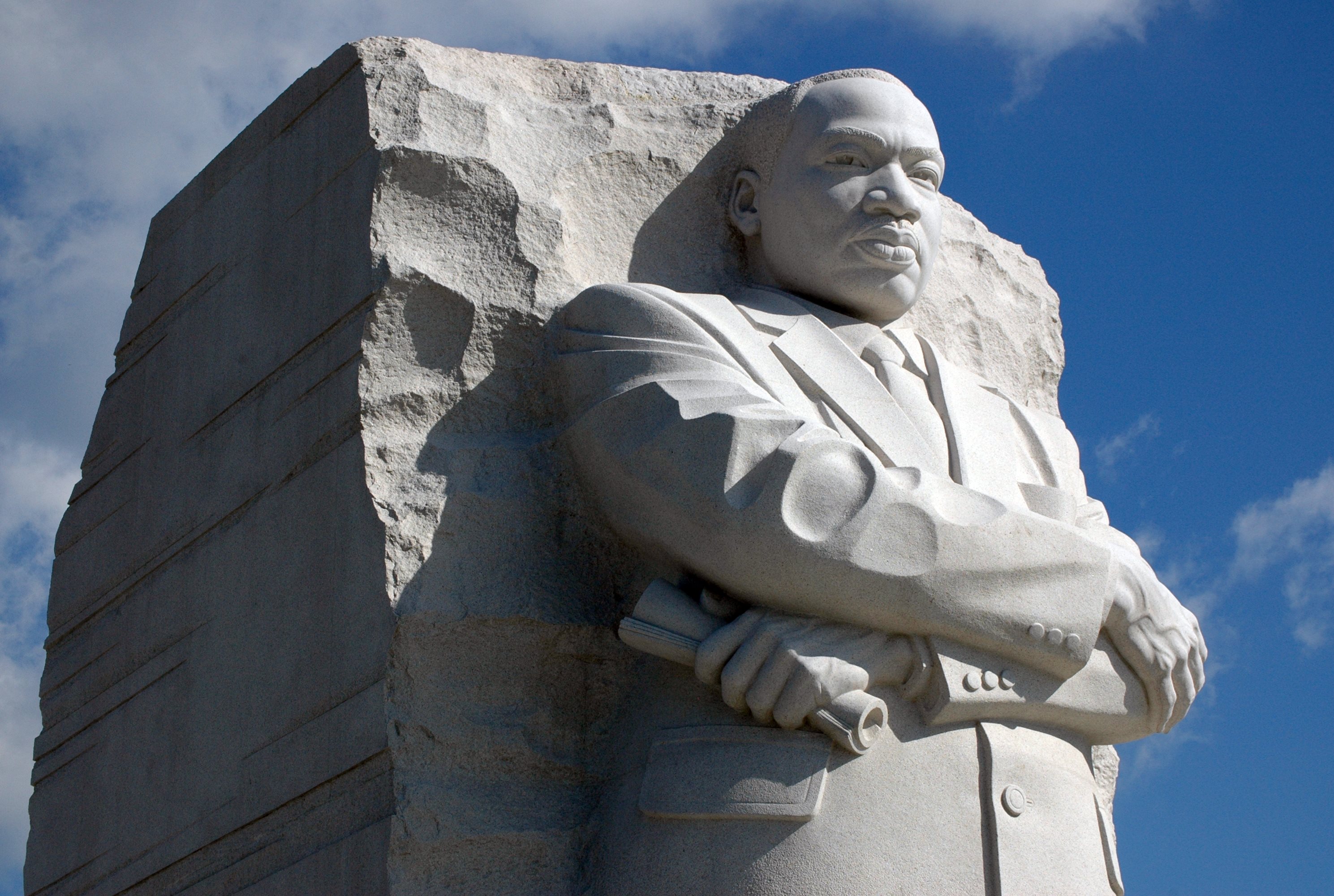Elon has service opportunities and events to celebrate the legacy of Martin Luther King Jr.
The Elon University community will celebrate the legacy of Dr. Martin Luther King Jr. during January with a range of events that this year will be focused on the theme of “Radical Thoughts, Radical Change: Building a Better World.”
King is widely recognized and celebrated for his dedication to the practice of nonviolent activism through tactics including sit-ins and boycotts. His commitment to fighting injustice through nonviolence was seen as radical by many, but its success was proven through the monumental victories of integration and voting rights.
King’s radical thoughts extended far beyond the borders of his homeland. He envisioned a world united as a community, a world where poverty, hunger, and homelessness would cease to exist. He knew that achieving this vision would require nothing short of radical transformation.
Events during January that are part of the commemoration are organized and coordinated by the Center for Race, Ethnicity and Diversity Education, the Kernodle Center for Civic Life and the Office of Cultural and Special Programs.
Commemorative Events
Martin Luther King Jr. Commemorative Address: A conversation with the authors of “We are Charleston: Tragedy and Triumph at Mother Emanuel”
Tuesday, Jan. 9, at 6 p.m.
McCrary Theatre, Center for the Arts
The authors of “We are Charleston: Tragedy and Triumph at Mother Emanuel” will visit Elon on Tuesday, Jan. 9, to deliver the Martin Luther King Jr. Commemorative Address at 6 p.m. in McCrary Theatre in the Center for the Arts.
Published in 2016, “We are Charleston” recounts the events of the horrific shooting at Mother Emanuel African Methodist Episcopal Church in Charleston, South Carolina, that left nine members of the congregation dead. Two days later, as white supremacist Dylan Roof was appearing in court after being charged with the murders, the families of the nine victims forgave the killer.
“We are Charleston” followed almost a year to the day after the shooting, written by Herb Frazier, Bernard Edward Powers Jr. and Marjory Wentworth. Reginald Hildebrand, associate professor of African American Studies & History at the University of North Carolina at Chapel Hill, writes that “In ‘We are Charleston,’ a sharp investigative reporter, a distinguished historian and a gifted poet have blended their skills, their knowledge, and their humanity in order to craft a probing account of and an insightful meditation on what happened to nine people who got caught being Black and trying to be Christian on a warm night in Charleston. This unsentimental yet sensitive book will become a very important part of the way that we remember and honor those nine unique individuals.”
National Day of Racial Healing Community Dinner & Dialogue
Tuesday, Jan. 16, from 5:30 to 7 p.m.
McKinnon Hall
The National Day of Racial Healing serves as a moment for reflecting on our shared values and collaboratively crafting the blueprint for #HowWeHeal; a chance to unite all individuals in their shared humanity and create action toward building a more just and equitable world.
Spots are limited. Registration required.
Service and Learning Opportunities
American Red Cross Blood Drive
Wednesday, Jan. 17, from noon to 6 p.m.
Alumni Gym
Sign-up for a time slot.
Sponsored by the Kernodle Center for Civic Life
Volunteer at the Boys & Girls Club
Thursday, Jan. 18, from 2:45 to 6:15 p.m.
The Salvation Army of Alamance County Boys & Girls Club
Volunteer with the after-school program at The Salvation Army of Alamance County Boys & Girls Club in Burlington. Registration is required. Spots are limited. Transportation will be provided from campus.
Sponsored by the Kernodle Center for Civic Life
Visit the African-American Cultural Arts and History Center
Friday, Jan. 19, from 9 a.m. to noon
African-American Cultural Arts and History Center, Burlington
The African-American Cultural Arts and History Center in Burlington actively collects and preserves Alamance County’s African-American history in many varied forms; cultural, architectural, artistic, familial, industrial, commercial, and generational. Many individuals who have made a lasting impact on the African-American community have been identified and documented. Unearthing their stories and formats is essential to the center’s mission. As a museum and cultural site, the center is determined to bring to the community all the benefits associated with heritage tourism and a public institution devoted to education and preservation.
Registration is required and spots are limited. Transportation will be provided from campus.
Sponsored by the Kernodle Center for Civic Life and CREDE



